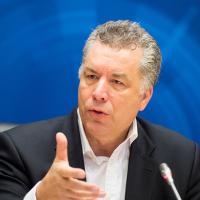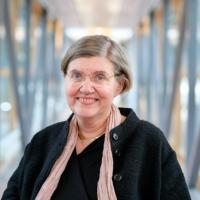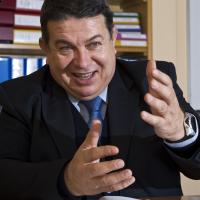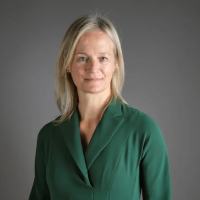A Science|Business Network members-only series of workshops (12:00-17:15 CET)
Although more than four years away, the public debate has already begun regarding the structure and orientation of the EU’s next Framework Programme for Research. On February 12, Science|Business will convene a series of in-depth workshops and debates, exclusively for members of its international Network, to develop concrete ideas about how to address some of the key issues which have emerged during Horizon Europe, and which will undoubtedly influence strategic decisions regarding its successor.





12:00 REGISTRATION AND BUFFET LUNCH
12:45 WELCOME, CONTEXT & OBJECTIVES
• Simon Pickard, Network Director & Richard L. Hudson, Editorial Director and Vice-Chair of the Board, Science|Business
13:00 PARALLEL WORKSHOPS I
Workshop 1: Structuring FP10
With new R&I funds and programmes proliferating outside the Framework Programme, and Horizon’s budget constantly under threat of being raided, is the idea of a comprehensive, one-size-fits all Framework Progamme still valid? Is the three-pillar system still correct? How should FP10 be structured, and how should it relate to other EU R&I programmes?
Workshop 2: Great science or great regions – can we have both?
From the US to Europe to China, there is always a political tussle in R&I policy between supporting great science, and supporting regional development. Horizon Europe tries to have it both ways – but few are happy with the results, and synergies between R&I and cohesion funds seem as elusive as ever. Is it possible to achieve both ways, and if so how?
Featured Guest:
- Magda De Carli, Head of Unit - European Semester & Country Intelligence, DG RTD, European Commission
Workshop 3: Is there a better way to pick grantees?
With AI already transforming the funding landscape, and the wasted resources of failed applications a longstanding but growing concern, should we rethink the entire grant assessment and allocation process? After 40 years of frustration, can anybody come up with a fairer, simpler way of doing things? And, once a grantee is chosen, is there a better way to manage and track the projects?
Featured Guest:
- Mario Gomez Geisler, Policy Officer - Industry 5.0 & AI in Science, DG RTD, European Commission
14:10 COFFEE BREAK
14:30 PARALLEL WORKSHOPS II
Workshop 4: The innovation conundrum – how should FP10 support SMEs?
In the past decade, the EU has made various efforts to support innovative, fast-growing companies – from 2014’s grassroots SME instrument, to today’s all-encompassing EIC. Looking ahead, however, is more consolidation and centralisation the way to go? What other measures could be on the table for FP10 to give SMEs a better chance of surviving the “valley of death”? And are there smart ways to strengthen the innovation ecosystem around the next Framework – such as a support mechanism for TTOs, EU-wide policies on IP rights and professors’ privilege, or through public procurement criteria?
Workshop 5: Should FP10 be more industry-focused?
Despite years of prodding, big European companies still spend less on R&D than US or Chinese counterparts – and the current Horizon Europe model of public-private partnerships does little to fix that. Worse, some argue the whole Framework Programme has drifted over the years away from its original coal of European competitiveness, into broader policy goals like climate mitigation, health care and fundamental research. Is there a better way to organise public-private R&I cooperation than Joint Undertakings and missions, and really boost industry’s role in European R&D?
Workshop 6: Framework goes international
With geopolitical tensions rising, strategic autonomy has become a policy meme in Brussels – yet the EU is also seeking new Framework agreements with countries far from Europe. Should FPs be Europe-first or a tool for international diplomacy? With so many powerful S&T nations now associated – Canada, UK, perhaps Korea and Japan – will the current governance system still work?
15:40 Transition break
16:00 Plenary session – Preparing for FP10: How can research and industry support the COM in planning for the future?
2024 will be a pivotal year in EU circles, due to Parliamentary elections in spring and the appointment of the next Commission later in the year. Inevitably, the outcomes of both will – over time – have a direct influence on how much strategic importance is given to research and innovation (R&I) within the EU’s next multi-year funding cycle (from 2028 to 2035).
Unsurprisingly, public debate has already begun about the design of and priorities for Horizon Europe’s successor (FP10). In parallel, the Commission has appointed a high-level group to gather stakeholder perspectives and advise on potential ways forward. But can the R&I community agree on how to “future-proof” FP10 in a hypercompetitive, turbulent world? Do research and industry have common needs, and how can FP10 effectively address them? Which bold ideas and innovations could transform its impact and value beyond 2028? In this interactive closing session, EU representatives and S|B Network leaders will debate these issues and more, drawing directly on the outcomes of the preceding member-only workshops.
Speakers:
- Christian Ehler, Member of the European Parliament
- Annelien Bredenoord, Rector Magnificus, Erasmus University Rotterdam
- Astrid Söderbergh Widding, President, Stockholm University
- Sergio Bertolucci, Chair, R&D&I Committee; Adjunct Professor, University of Bologna & former Scientific Director, CERN
- Brit Helle, Director General, Eureka
Moderated by Richard L. Hudson & Florin Zubaşcu, Executive Editor, Science|Business
17:15 CLOSE OF SESSION
Partners


 A unique international forum for public research organisations and companies to connect their external engagement with strategic interests around their R&D system.
A unique international forum for public research organisations and companies to connect their external engagement with strategic interests around their R&D system.